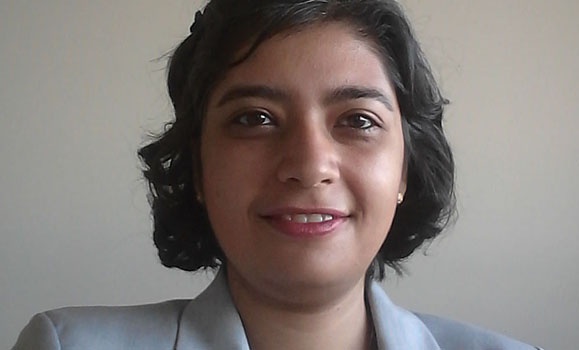News
» Go to news mainAvoiding the services ‘cliff’: New research looks at improving the transition to adulthood for people with developmental disabilities

According to the Canadian census on disability, one in five Canadians aged 15 years and older have one or more disabilities. Individuals with disabilities usually face barriers to access resources and services. Among those with disabilities (e.g., autism, cerebral palsy, intellectual problems, developmental delays), youth are often at higher risk of additional health conditions that limit their full participation. The transition to adulthood is a vulnerable time, as the access to children’s health services ends and not every service is replaced with an adult version, leading to abrupt and unplanned transitions.
New research by Dr. Parisa Ghanouni and her team hopes to change all of that.
Dr. Ghanouni is an Assistant Professor in the School of Occupational Therapy at Dalhousie University. Working closely with individuals who have developmental disabilities, their families, clinicians and other health professionals, Dr. Ghanouni will look for ways to streamline, maintain and enhance access to programs to support these young people as they transition to adulthood.
The project, entitled: Community-Based Services for Individuals with Developmental Disabilities: Transition to Adult Care, has received a New Health Investigator Grant from Research Nova Scotia ($100,000).
She says the pilot study is a path to move forward for individuals with developmental disabilities and their families.
“There are two phases to the project: first, we will conduct interviews with youth with developmental disabilities to get valuable first-person experiences and insights,” she says. “We’ll complete the picture with input from caregivers as well as service providers, clinicians, and family doctors.”
The second phase will involve focus groups to narrow down the ideas from phase one to find solutions to the problems that were identified.
Seeing the services gap through an occupational therapy lens
Despite the great progress signaled by the United Nations Convention on the Rights of Persons with Disabilities, individuals with disabilities worldwide continue to confront barriers to equitable access to the health resources and social supports that enable their full participation in society.
Through this research, Dr. Parisa Ghanouni and her team plan to uncover barriers to community-based healthcare services during the transition of adolescents with developmental disabilities to adulthood in rural areas and co-develop a toolkit with stakeholders that outlines strategies to promote successful transitions around services for people with disabilities.
The project will help combat health inequities through a focus on social determinants of health and could enhance the quality of healthcare for individuals with disabilities.
Dr. Ghanouni brings an occupational therapy lens to the project. She says the field of occupational therapy is well suited to finding solutions to these complex challenges for youth on the autism spectrum and with other disabilities.
“The area of transition is one of the most important areas in OT. We always think in terms of continuation of care — for example, after an injury or accident, we look at how someone can meet the challenges of daily life on an ongoing basis. This project will look at the services gap that exists once individuals reach a certain age, and what can be done by working together to address this gap to provide ongoing care and support to ease the transition into adulthood,” she says.
“In other words, the project will look at how we can help folks to have a meaningful life by eliminating barriers and facilitating accessibility and quality of care on an ongoing basis.”
Dr. Ghanouni would like to thank NSHA and the project’s stakeholders and community partners for the support to make this important project happen. She hopes the initiative will provide relief for families who are currently taking on these challenges.
“My goal is that because of this work, individuals will have much more satisfaction when they transition into adulthood, rather than potential anxiety and stress. We hope the project will bring peace of mind to families and let them know they are not in this alone.”
Recent News
- New clinic set to revolutionize respiratory care in Nova Scotia
- Grad profile: Inspired by the comfort and care of nurses
- Grad profile: Transformative network of support
- Grad profile: A career built on compassion and purpose
- Grad profile: Lifelong passion for serving others
- Grad profile: Leaving space for what comes next
- Dal Health Fall Convocation
- Grad profile: Taking risks for meaningful growth
